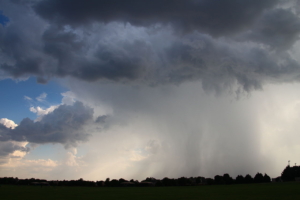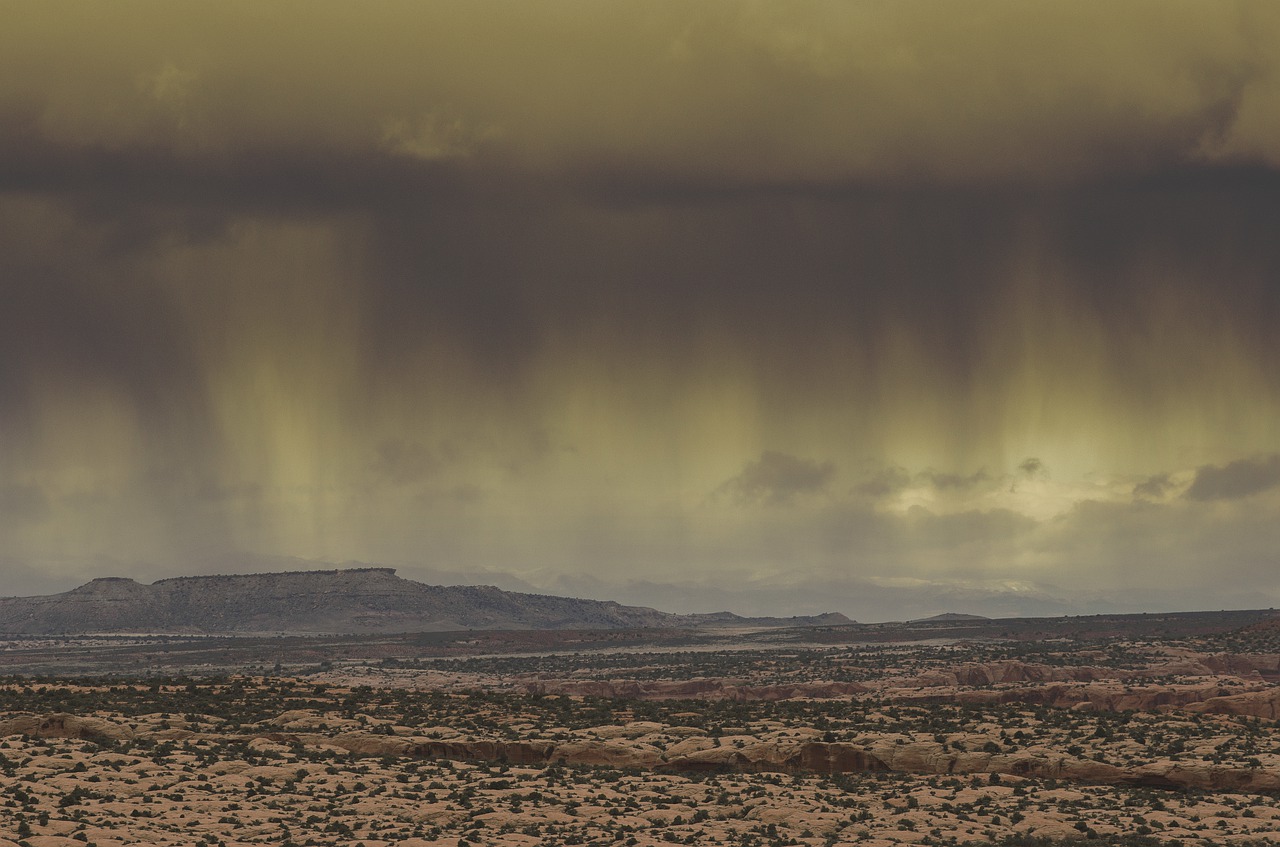On Shemini Atseret, one is supposed to begin mentioning rain in the second blessing of their Amidah prayers (Ta’anit 2a). In many communities, this is liturgically marked by a poetic introduction in the repetition of the Amidah, called Geshem, specifically with the piyyut “Zekhor Av” written by Rabbi Eleezer BeRabbi Kalir, which alludes to the references of our forefathers’ relations to water. One feature of this poem is that it utilizes an alef-bet-ical acrostic, and while there are various modern adaptations that include biblical women, those break the acrostic. This is my attempt to compose a version including stanzas for our foremothers, while maintaining the acrostic by writing the women’s stanzas as a backwards acrostic (i.e. starting from tav and going to alef). This backwards acrostic containing the foremothers is then interspersed with Kalir’s original. I hope that this project will allow synagogues and minyanim to use this text on Shemini Atseret to add meaning to their prayers and feel more inclusive of the values in their communities.
| Source (Hebrew) | Contribute a translation |
|---|---|
זְכוֹר אָב נִמְשַׁךְ אַחֲרֶֽיךָ כַּמַּֽיִם בֵּרַכְתּוֹ כְּעֵץ֮ שָׁת֢וּל עַֽל־פַּלְגֵ֫י מָ֥יִם גְּנַּנְתּוֹ הִצַּלְתּוֹ מֵאֵשׁ וּמִמַּֽיִּם דְּרַשְׁתּוֹ בְּזְָרעוֹ עַל כָּל מַֽיִם בַּעֲבוּרוֹ אַל תִּמְנַע מַֽיִם | |
זְכוֹר תְּחוֹלְלֶֽנּוּ[1] Isaiah 51:2 שֶׁהִרְבָּה נֶֽפֶשׁ[2] Bereshit Rabbah 39:14, on Genesis 12:5. Sarah participated in converting women to monotheism. כַּמַּֽיִם שָׁדֶֽיהָ נִפְתְּחוּ כְּמַעֲיָּנוֺת מַֽיִם[3] Bava Metzia 87a.12-13. Sarah’s breasts miraculously opened up in her old age, that she was able to feed even others’ children. רוֹנְנָה בְּקִרְבָּהּ וְצָחֲקָה[4] Genesis 18:12 כַּמַּֽיִם קִיֵּם אֺרְחֶֽיהָ כַּנָּשִׁים[5] Genesis 18:11 כַּמַּֽיִם בַּעֲבוּרָהּ אַל תִּמְנַע מַֽיִם | |
זְכוֹר הַנּוֹלַד בִּבְשׂוֹרַת יֻקַּחֽ־נָ֣א מְעַט־ מַ֔יִם וְשַׂחְתָּ לְהוֹרוֹ לְשָׁחֳטוֹ לִשְׁפֹּךְ דָּמוֹ כַּמַּֽיִם זִהֵר גַּם הוּא לִשְׁפֹּךְ לֵב כַּמַּֽיִם חָפַר וּמָצָא בְּאֵרוֹת מַֽיִם בְּצִדְקוֹ חֹן חַשְׁרַת מַֽיִם | |
זְכוֹר טָעַן מַקְלוֹ וְעָבַר יְַרדֵּן מַֽיִם יַחֵד לֵב וְגָל אֶֽבֶן מִפִּי בְאֵר מַֽיִם כְּנֶאֱבַק לוֹ שַׂר בָּלוּל מֵאֵשׁ וּמִמַּֽיִּם לָכֵן הִבְטַחְתּוֹ הֱיוֹת עִמּוֹ בָּאֵשׁ וּבַמָּֽיִם בַּעֲבוּרוֹ אַל תִּמְנַע מַֽיִם | |
זְכוֹר נִשְּׁקָה[11] Genesis 29:11 הָרֹעָה הַבָּֽאָה לִבְאֵר מַֽיִם[12] Genesis 29:9 מְנַע קוֹלָהּ מִבֶּֽכִי וְעֵינֶֽיהָ מִדִּמְעַת[13] Jeremiah 31:15 מַֽיִם לְבֶָנֶֽיהָ מְבַכָּה[14] Jeremiah 31:14 גָּלֹתָם עַל נַהֲרוֹת[15] Psalms 137:1 מַֽיִם כֵּן שָֽׁבוּ בָנֶֽיהָ לִגְבוּלָם[16] Jeremiah 31:16 כַּאֲפִיקֵי[17] Psalms 126:4 (The word is not unique to this psalm, but was part of the thought as contrast to the Psalms 137 reference) מַֽיִם בַּעֲבוּרָהּ אַל תִּמְנַע מַֽיִם | |
זְכוֹר יָצְאָה מִמֶּֽנָּה שִׁשָּׁה[18] Reuben, Simeon, Levi, Judah, Issachar, and Zebulon. But the Midrash that Dinah’s gender was switched (Tanchuma, Vayetzei 8:3) is tangentially in the background. כְּשֶֽׁפַע מַֽיִם טוֺב עֵינֶֽיהָ, רַכּוֹת[19] Genesis 29:17 מִבְּכִי[20] Bereshit Rabbah 70:16. The reason Leah’s eyes were “soft” was that she was crying frequently. מַֽיִם חָפְצָה אַהֲבַת אִישָׁהּ[21] Genesis 29:32 וּבוֹכָה מַֽיִם זָבַדְתָּהּ בָּנִים[22] Genesis 30:20 שֺׁכְנֵי כָּל חוֺף[23] Genesis 49:13 מַֽיִם בְּצִדְקָהּ חֹן חַשְׁרַת מַֽיִם | |
זְכוֹר מָשֽׁוּי בְּתֵבַת גֹּֽמֶא מִן הַמַּֽיִם נָמוּ דָּלֹה דָלָה וְהִשְׁקָה צאֹן מַֽיִם סְגוּלֶֽיךָ עֵת צָמְאוּ לְמַֽיִם עַל הַסֶּֽלַע הָךְ וַיֵּצְאוּ מַֽיִם בְּצִדְקוֹ חֹן חַשְׁרַת מַֽיִם | |
זְכוֹר וַתָּ֥שֶׂם בַּסּ֖וּף עַל־שְׂפַ֥ת[24] Exodus 2:3 הַמַּֽיִם הַשַּׁפִּרָה[25] Sotah 11b.11-12. Here, the word is used to mean “reasonable” or “good” but it is hinting that her other name was Shifrah. לְהַצְפִנוֺ[26] Exodus 2:3 מִגְּזֵרַת מַֽיִם דָּם הַיְּלָדִים הֶחְיְתָה מִן הַמַּֽיִם[27] Exodus 1:17 גָּם מַסְפִּיקָה לָהֶם מָזוֺן[28] Sotah 11b.18, commenting on Exodus 1:17. וּמַֽיִם בַּעֲבוּרָהּ אַל תִּמְנַע מַֽיִם | |
זְכוֹר פְּקִיד שָׁתוֹת טוֹבֵל חָמֵשׁ טְבִילוֹת בַּמַּֽיִם צוֹעֶה וּמְַרחִיץ כַּפָּיו בְּקִדּוּשׁ מַֽיִם קוֹרֵא וּמַזֶּה טָהֳרַת מַֽיִם רֻחַק מֵעַם פַּֽחַז כַּמַּֽיִם בַּעֲבוּרוֹ אַל תִּמְנַע מַֽיִם | |
זְכוֹר בָּאָה וְהִתְיַצְּבָה מֵרָחֺק[29] Exodus 2:4 לַמַּֽיִם בְּתֹף וּמָחוֹל[30] Exodus 15:20, Psalms 150:4 עָנְתָה[31] Exodus 15:21 בְּתוֹךְ הַמַּֽיִם אָחוֹת וּנְבִיאָה[32] Exodus 15:20 שֶׁשָּׁאֲבָה בְּשָׂשׂוֹן מַֽיִם[33] Isaiah 12:3 אֵֽצֶל בְּאֵרָהּ הַמִּטַּלְטֵל[34] Shabbat 35a.6. Miriam had a well that was portable, and used to provide for Israel as they were traveling throughout the wilderness. שָׁתִֽינוּ מַֽיִם בְּצִדְקָהּ חֹן חַשְׁרַת מַֽיִם | |
זְכוֹר שְׁנֵים עָשָׂר שְׁבָטִים שֶׁהֶעֱבְַרתָּ בְּגִזְרַת מַֽיִם שֶׁהִמְתַּקְתָּ לָֽמוֹ מְרִירוּת מַֽיִם תֹּלְדוֹתָם נִשְׁפַּךְ דָּמָם עָלֶֽיךָ כַּמַּֽיִם תֵּֽפֶן כִּי נָפְשֵֽׁנוּ אָפְפוּ מַֽיִם בְּצִדְקָם חֹן חַשְׁרַת מַֽיִם |
I am grateful to the already extant versions of Geshem with verses for biblical women, by Rabbi Jill Hammer, Mark Frydenberg and Rabbi Simcha Roth, and Rabbi Ruth Gan Kagan (1, and 2), as well as those found in the Israeli Masorti Va’ani Tefilati Siddur and the Conservative movement’s Lev Shalem Siddur. I am also grateful to the Facebook group, “S’fatai Tiftach—The Baalei Tefilah Forum,” and specifically to its members Isaac Gantwerk Mayer and Dov Rosenschein for their suggestions. There have been numerous drafts of this work that I have used over the years, but this edition was completed over Sukkot 5783.
Notes
| 1 | Isaiah 51:2 |
|---|---|
| 2 | Bereshit Rabbah 39:14, on Genesis 12:5. Sarah participated in converting women to monotheism. |
| 3 | Bava Metzia 87a.12-13. Sarah’s breasts miraculously opened up in her old age, that she was able to feed even others’ children. |
| 4 | Genesis 18:12 |
| 5 | Genesis 18:11 |
| 6 | Genesis 24:15 |
| 7 | Genesis 24:11 |
| 8 | Genesis 24:19 |
| 9 | Genesis 24:17 |
| 10 | Genesis 24:19 |
| 11 | Genesis 29:11 |
| 12 | Genesis 29:9 |
| 13 | Jeremiah 31:15 |
| 14 | Jeremiah 31:14 |
| 15 | Psalms 137:1 |
| 16 | Jeremiah 31:16 |
| 17 | Psalms 126:4 (The word is not unique to this psalm, but was part of the thought as contrast to the Psalms 137 reference) |
| 18 | Reuben, Simeon, Levi, Judah, Issachar, and Zebulon. But the Midrash that Dinah’s gender was switched (Tanchuma, Vayetzei 8:3) is tangentially in the background. |
| 19 | Genesis 29:17 |
| 20 | Bereshit Rabbah 70:16. The reason Leah’s eyes were “soft” was that she was crying frequently. |
| 21 | Genesis 29:32 |
| 22 | Genesis 30:20 |
| 23 | Genesis 49:13 |
| 24 | Exodus 2:3 |
| 25 | Sotah 11b.11-12. Here, the word is used to mean “reasonable” or “good” but it is hinting that her other name was Shifrah. |
| 26 | Exodus 2:3 |
| 27 | Exodus 1:17 |
| 28 | Sotah 11b.18, commenting on Exodus 1:17. |
| 29 | Exodus 2:4 |
| 30 | Exodus 15:20, Psalms 150:4 |
| 31 | Exodus 15:21 |
| 32 | Exodus 15:20 |
| 33 | Isaiah 12:3 |
| 34 | Shabbat 35a.6. Miriam had a well that was portable, and used to provide for Israel as they were traveling throughout the wilderness. |

“תפילת גשם כולל אמהות | Tefillat Geshem including the matriarchs with stanzas in a backwards acrostic, an adaptation by Eliran Sobel” is shared through the Open Siddur Project with a Creative Commons Attribution-ShareAlike 4.0 International copyleft license.










Leave a Reply